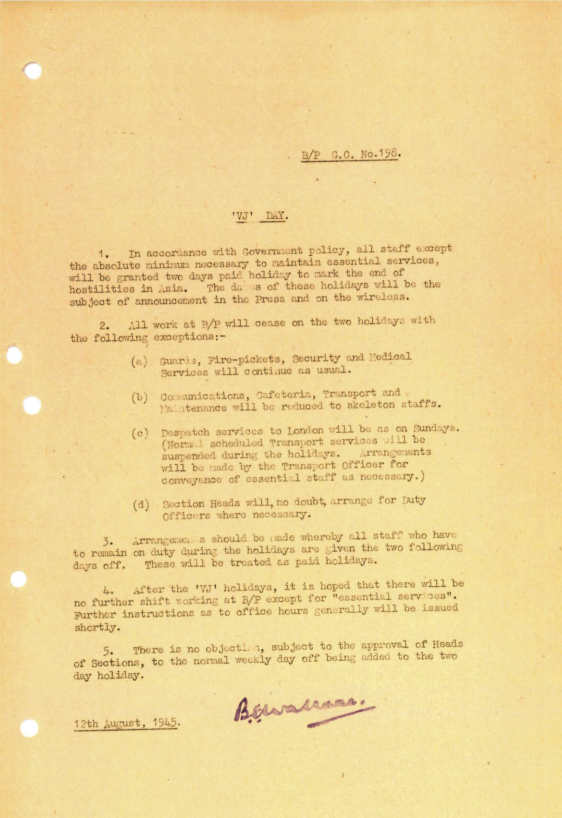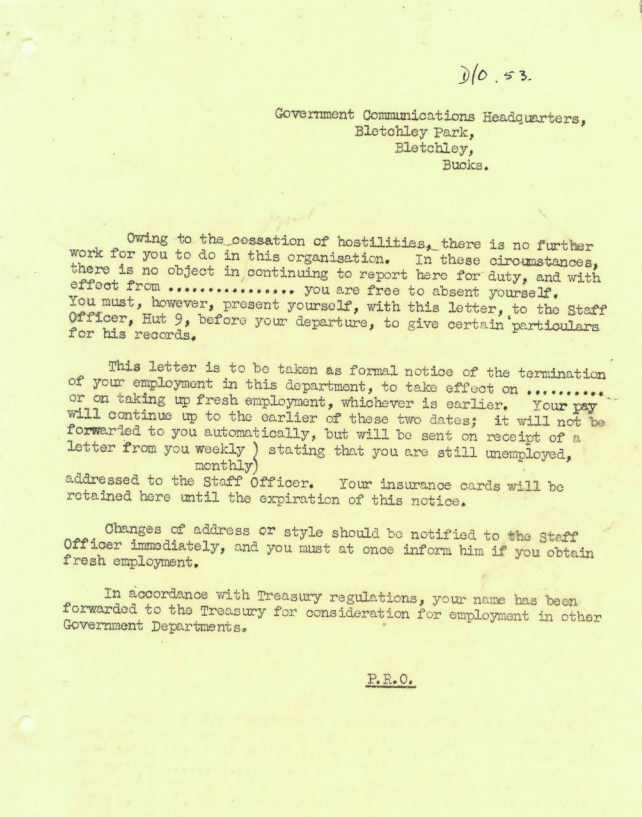Newly released letters from GCHQ have shed light on the immediate aftermath of the Second World War for Britain's top secret codebreakers.
They reveal how staff were granted unexpected holidays and informed their vital work was concluding after Victory in Japan (VJ) Day.
The intelligence agency has published the historic documents to mark the 80th anniversary of the end of the war.
They offer a rare glimpse into the lives of those who deciphered Nazi messages during the conflict.
One letter, dated 12 August 1945 – just days before VJ Day was declared on 15 August – was sent to staff at GCHQ’s wartime headquarters, Bletchley Park.
It stated: "All staff except the absolute minimum necessary to maintain essential services, will be granted two days paid holidays to mark the end of hostilities in Asia."

According to GCHQ, then known as GC&CS (Government Code and Cypher School), such additional holiday would have been highly unusual for its dedicated personnel.
The document added: “After the VJ holidays, it is hoped that there will be no further shift working at B/P except for ‘essential services’.”
GCHQ staff were bound by the Official Secrets Act and were unable to talk about their secret work they carried out during the war.
The second letter contains a template for telling staff their employment had ended.
Their managers would have filled in the correct dates and sent it to their teams.

It reads: “Owing to the cessation of the hostilities, there is no further work for you to do in this organisation. In these circumstances there is no object in continuing to report here for duty, and with effect from ****** you are free to absent yourself.
“This letter is to be taken as formal notice of the termination of your employment in this department.”
The documents show what happened to British war efforts in the days surrounding the surrender of Imperial Japan in the Second World War.
At the once-secret site, wartime codebreakers used early forms of computer intelligence – cryptanalytical machines called bombes – to break the Enigma code used by the Nazis to encrypt messages.
Their efforts changed the course of the war and saved millions of lives.
It enabled British intelligence to move more quickly and act on the information the Bletchley team gave them, contributing to a number of key military victories.
It also sparked the industrialisation of codebreaking and helped pave the way for the first forms of the computers used today.
After the war, in 1946, GC&CS became GCHQ and moved out of Bletchley Park, developing into the intelligence and cyber agency it is today.
GCHQ director of technology futures Marsha Quallo-Wright said: “As someone working at the forefront of new and emerging technology for GCHQ, understanding our rich history is as important to me as looking to our future.
“We have a lot to thank our predecessors for, and the dedication and innovation shown by those working at Bletchley Park, GCHQ’s wartime home, never ceases to amaze me.
“These documents help us to understand what happened to that workforce after six long years when VJ Day was declared. I’m pleased that we’re able to offer this insight into their world.”







